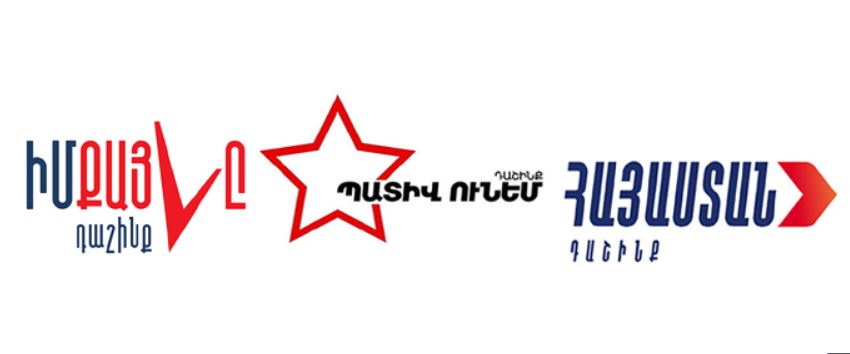Last week, the observations of the first president of Armenia Levon Ter-Petrossian on the internal political situation, which were presented on ilur.am, are mostly correct. The three dominant forces in the political arena and represented in parliament are fighting to stay in power and come to power, respectively. (Allegations of “lack of public interest” and “non-discrimination” need more detailed substantiation). Representatives of the two opposition forces claim that they do not aspire to power, but we have reason to not believe them. Serzh Sargsyan, for example, stated in 2014 that if a parliamentary system of government is defined by constitutional changes, he will not run for prime minister. But the exact opposite happened. The statements of politicians can not be a basis for conclusions.
“The rest of society has no leverage to influence the situation at the moment,” the first president rightly said, probably referring to his party, the Armenian National Congress, and its supporters. The next sentence, we must assume, answers the question why this is so. “Active actors in the political science and media field almost completely serve the interests of these three camps.” In my opinion, it is an exaggeration: there are at least 5-6 reputable websites in Armenia, which obviously do not serve the interests of those three.
It is impossible to explain the current situation only with propaganda and the resources available for it, most of which, of course, are in the possession of the above-mentioned three forces. Other factors are also important here, one of which I can only talk about briefly due to the lack of space. (Of course, sociologists and political scientists should talk about it, but I have not seen a purely scientific analysis of this problem yet). The rating of the current Prime Minister is still quite high today – Pashinyan, not the Civil Contract, the government or the parliament. Most of that rating is “secured” by the counter-ratings of Robert Kocharyan and Serzh Sargsyan. The moment the main opposition forces are not associated with the second and third presidents (and that moment will come sooner or later), there will be serious rivals for Pashinyan who will meet the demands of the majority of the society.
These demands, in turn, are not related to security, Artsakh, Armenian-Turkish relations, especially democracy and the rule of law. The main demand is “justice.” This word, of course, has many meanings: 1) law, 2) mercy, 3) restoration of the previous situation, 4) equality, 5) inequality in favor of the needy, 6) compensation, punishment, revenge. This last meaning still prevails in our political field and forms the “mainstream” of the debate. But that situation, as I said, will not last forever.
Read also
Aram Abrahamyan





















































